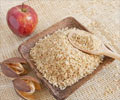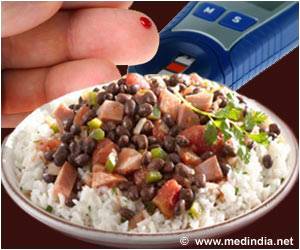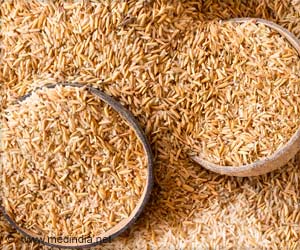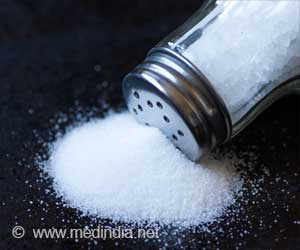- TikTok viral films have spurred an important discussion on the dangers of food illness from leftover rice
- Despite some misconceptions, experts recommend that all cooked grains be refrigerated to prevent the growth of Bacillus cereus
- Leftover rice should be refrigerated no more than two hours after cooking and can be stored in the refrigerator for up to four days, according to experts
One might think that keeping cooked rice out on the counter is the same as leaving out a loaf of baked bread, but nutritionists say that's not the case.
"Bacterial spores are heat resistant, so they survive even after the rice is cooked and reheated," geriatric nursing care specialist Nancy Mitchell, RN, told Health. "The problem is that leaving the rice out at room temperature for too long can encourage the spores to develop into bacteria."
Here's what experts had to say about why individuals get sick from eating leftover rice, as well as the precautions you should take to avoid getting sick.
Can Leftover Rice Cause Food Poisoning?
Food poisoning is a sickness caused by eating food or drinking water contaminated with potentially hazardous bacteria, parasites, viruses, or toxins. It's also rather common—each year, over 48 million people in the United States suffer from food poisoning.Infected persons may experience vomiting, diarrhea, fever, and stomach cramps while their bodies rid themselves of the foreign material (1✔ ✔Trusted Source
The survival and growth of Bacillus cereus in boiled and fried rice in relation to outbreaks of food poisoning
Go to source).
The majority of food poisoning cases resolve on their own within a week. However, exposure to these dangerous items can be especially dangerous for people who are immunocompromised, pregnant, or under the age of five.
Their bodies may be ill-equipped to deal with these unwanted creatures. Food poisoning can be fatal in severe situations; it is responsible for approximately 3,000 deaths in the United States each year.
As a result, it is critical to take the necessary precautions to avoid food poisoning so that people can lower their chances of falling ill.
Leftover Rice: a Harbor for Bacteria
Rice may appear to be a low-risk food. Even though cooked rice is a single-grain dish that contains no raw ingredients, it can still harbor bacteria that can cause illness if not properly stored and reheated."Cooked rice has a history of containing the bacteria Bacillus cereus," Toby Amidor, MS, RD, CDN, FAND, an award-winning nutrition expert, food safety expert, and author of the upcoming book, Up Your Veggies: Flexitarian Recipes for the Whole Family.
When swallowed, the bacteria in the soil generate a toxin that causes gastrointestinal problems.
"Bacillus cereus is one of the most common causes of foodborne illness, with over [63,000] cases reported annually in the US," Melissa Azzaro, RDN, LD, registered dietitian.
"It's so common that the vomiting and diarrhea that can occur 1–5 hours after eating improperly stored leftover rice has been dubbed 'fried rice syndrome.'" Bacillus cereus infection is usually moderate, but it can be hazardous, especially in people with compromised immune systems.
This danger is not limited to rice, according to Azzaro. If the grain is not stored properly, it might harbor bacteria and cause illness.
How to Store Leftover Rice Correctly
Eating cooked and properly heated rice poses relatively little risk. However, bacteria can grow very quickly if the rice is exposed to "temperatures ranging from 40 to 140 degrees Fahrenheit (referred to as the temperature danger zone) for more than two hours," according to Amidor.Amidor noted that cooked rice should not be left at room temperature for more than two hours, and no longer than one hour if the temperature is above 90 degrees Fahrenheit.
When the rice is no longer hot, it "should then be placed in a covered container in the refrigerator," she adds. And, once cooled and stored in a refrigerator kept below 40 degrees Fahrenheit, leftover rice can be kept for up to four days, according to Amidor.
"Cooked rice can also be frozen in a freezer-safe container or resealable bag for up to three to four months," she explains.
Azzaro said that once people are ready to consume their leftover rice, it can only be warmed once. She suggests reheating a serving rather than heating the entire remaining batch to avoid the reheating-storing-reheating cycle.
To help assure food safety, any leftovers—whether rice, spaghetti or your mother's potato casserole—should be warmed to an internal temperature of 165 degrees Fahrenheit.
When it comes to the safety of consuming leftover rice, the only concern is incorrect storage. Rice contains several key nutrients that help people stay energized and well-nourished, so eating rice for leftovers the next day is a healthy and safe option—as long as it's kept and warmed properly.
Reference:
- The survival and growth of Bacillus cereus in boiled and fried rice in relation to outbreaks of food poisoning - (https://pubmed.ncbi.nlm.nih.gov/4216605/)
Source-Medindia










